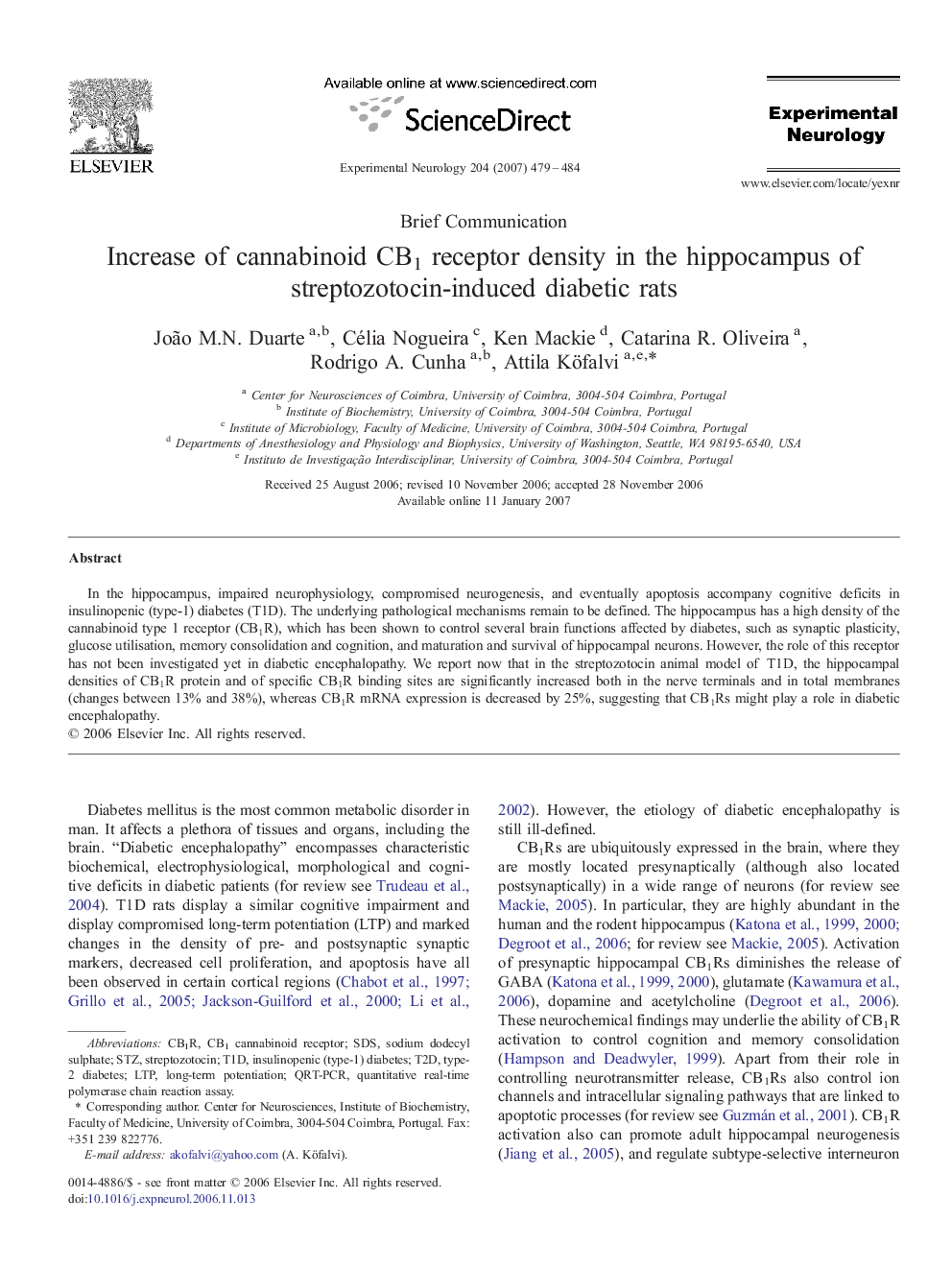| Article ID | Journal | Published Year | Pages | File Type |
|---|---|---|---|---|
| 3057203 | Experimental Neurology | 2007 | 6 Pages |
In the hippocampus, impaired neurophysiology, compromised neurogenesis, and eventually apoptosis accompany cognitive deficits in insulinopenic (type-1) diabetes (T1D). The underlying pathological mechanisms remain to be defined. The hippocampus has a high density of the cannabinoid type 1 receptor (CB1R), which has been shown to control several brain functions affected by diabetes, such as synaptic plasticity, glucose utilisation, memory consolidation and cognition, and maturation and survival of hippocampal neurons. However, the role of this receptor has not been investigated yet in diabetic encephalopathy. We report now that in the streptozotocin animal model of T1D, the hippocampal densities of CB1R protein and of specific CB1R binding sites are significantly increased both in the nerve terminals and in total membranes (changes between 13% and 38%), whereas CB1R mRNA expression is decreased by 25%, suggesting that CB1Rs might play a role in diabetic encephalopathy.
